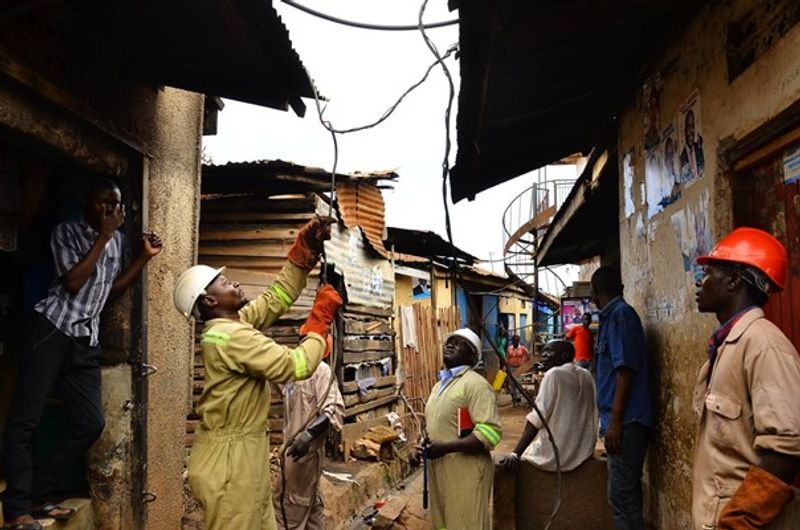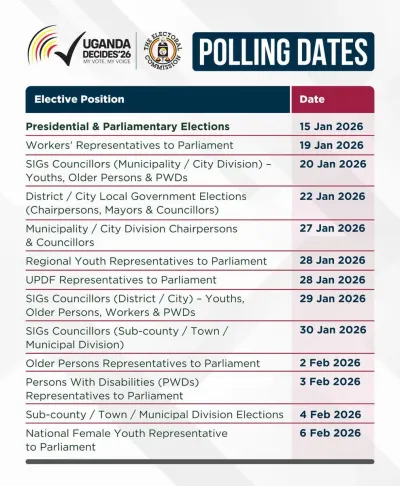
Power theft series: Part two

Field operation disconnections of power thieve-photo from the Nilepost
Despite the risks involved in stealing power including arrests, torture, payment of fines and electrocution, people continue to illegally connect themselves to Uganda’s national grid. Why?
Residents of Namanyonyi Sub County in Mbale district say that delayed power connections by UMEME is one of the factors that have left power theft alive and thriving in the region.
Abu baker Hiire, a resident of Aisa-Teko village, said that in spite of its dangers, residents will, especially in rural areas, continue to hook themselves to the transmission lines unless the power distributor improves service delivery.
“Someone can do the wiring and when you go to UMEME for installation, it takes months and months which forces most people to steal because by the time you ask for installation you need the power,” he said.
In Busamira-Namakole some residents blame the Rural Electrification Agency (REA) for isolating them.
“All the surrounding villages have power but we wonder why REA skipped us. We have applied for power but in vain. We were even conned of UGX 280,000 by three men who claimed to be REA officials only to realize that they were fraudsters,” said Kamadi Kariebi, a frustrated resident.
Uganda’s Rural Electrification Strategy and Plan (RESP 2001-2010) failed to meet its 10 percent rural connection target, achieving below five percent, according to the 2010 Auditor General’s Report.
The second phase, RESP (2013-2022) was launched in 2012 with the aim of achieving a rural electrification access of 26 percent by 2022, 51 percent by 2030 and 100 percent. By 2019, nineteen percent of the rural population had access to electricity and 23 percent of the urban; according to the USAID’s Power Africa (a US government led initiative).
In addition to the RESP, the government in November 2018, launched the 2018-2027 Electricity Connections Policy (ECP). The policy seeks to achieve a 60 percent level of access to electricity for Uganda by 2027, and increase on the number of connections made annually from 70, 000 in 2018 to 300,000 by 2027.
In areas where power lines have been extended, high charges were pointed out as another factor leading to power theft.
Swaibu Busiku, an investigative journalist at IUIU FM in Mbale district said that unless electricity is more affordable, stopping power theft will be impossible.
“Beginning with the extension of poles, UMEME charges between UGX 400,000 and UGX 600,000. After wiring the house there are brokers whom you find outside UMEME offices if you are not careful they can cone you,” he said. “When one succeeds in applying for power, the official who is sent to inspect the house also demands for money, in addition to the inspection fees. When you sum up this you end up with between UGX 800,000 and UGX 1m. How do you expect a person who stays deep in the village, surviving on less than a dollar a day to afford all those costs?”
Peter Masaba another resident said it is not a surprise to see people stealing power when the cost of a unit can go beyond UGX 1000 after summing up the different charges. “Most of us in rural areas are left out. The national cake has been concentrated in a certain region. Even the power that is extended to us is also expensive. Now how do you expect us to just be looking at the wires passing near our houses and moreover with poles planted in our land yet we are still sleeping in darkness,” he said

A resident hooks a wire on the transmission line
According to Stephen Ilungole, the UMEME Media Relations Officer, stealing power is largely about the mindset.
“We have been running behavior change campaigns to demystify this myth and also highlight the dangers of power theft which include death, loss of property through fires and unreliable and poor quality power supply [but people continue to steal power], ” he said.
The official UMEME connection charge sheet indicates that only UGX 29,100 is required for one to be connected to the grid. UGX 20,000 is for connection and UGX 9100 for initial units on the meters.
The Electricity Retail Base Tariffs for 2020 indicate that UMEME charges a unit (kilowatt) of electricity at UGX 250 for domestic customers who consumes below 15 units a month and UGX 751.7 per unit for those consuming above 15 units over the same period.
How power theft can be minimized
Yusuf Semambo, a former Bursar at Umar Islamic Primary School in Nankusi advises UMEME to start providing free installation services if they (UMEME) are to end power theft.
“If they could install freely then it could be simple for the local people to do the wiring and pay the regular bills,” he said.
The Sironko district Woman Member of Parliament Florence Nambozo said that power theft in rural areas can be completely curbed if the Rural Electrification Program (REP) is speedily implemented, because the program is aimed at connecting villages at a free cost.
“I urge the authorities in REP to speed up the process of implementing the program since the program is aimed at increasing the percentage of the rural population accessing electricity,” she said.













Busein Samilu
Leave a Comment
Your email address will not be published.